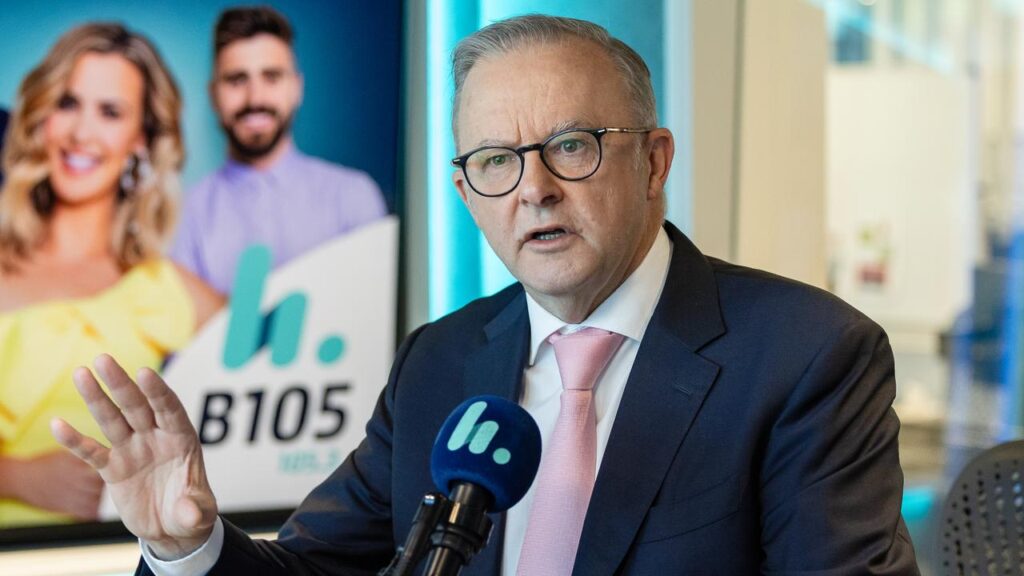Albanese pitches certainty in bid for second term as PM
Andrew Brown |

Anthony Albanese has laid out his final case for a second term as prime minister as Peter Dutton ruled out agreements with right-wing minor parties to claim the top job.
In a major set-piece speech to the National Press Club just three days out from polling day, Mr Albanese emphasised he was a safe pair of hands to guide the country over the coming three years during a period of international turmoil.
“At a time of global uncertainty when so much in the world is unpredictable, Australians can be sure of where Labor stands and what Labor stands for,” he said in the Wednesday address.
“The Liberals have not changed and they have not learned. It is very clear to all that they have simply not done the work that you need to do if you are to present as a credible alternative government.”

Once again wielding his Medicare card, which has become a frequent sight on the campaign trail, the prime minister ran through his second-term agenda of expanding health care and increasing access to housing.
Mr Albanese also criticised the platform of the opposition leader, saying uncertainties still remained over the coalition’s policies.
“The answer to every question boils down to ‘we’ll tell you after the election’,” he said.
“It beggars belief that someone seeking to be prime minister of Australia could propose such a risky and extreme set of policies, and yet … still refuse to explain what those policies will mean to you.

The prime minister said Labor’s offerings to the public had been out in the open months before the election.
“Australians can be very confident that we will always stand up for Australia, trusting our values and backing our people to build that future,” he said.
Mr Dutton earlier ruled out forming a minority government with One Nation, despite the Liberals and Pauline Hanson’s party trading preferences.
The opposition has listed One Nation at number two on its how-to-vote cards in several crucial marginal seats following a surge in the far-right minor party’s primary vote in published polls.

But the opposition leader said Senator Hanson wouldn’t be part of any future government after Saturday’s federal election if it resulted in a hung parliament.
“I wouldn’t be mucking around with independents and third parties at this election, I really wouldn’t,” he told reporters in Melbourne.
“We don’t want to see a European situation where you’ve got a handful of Greens and left-leaning teal candidates who are holding the government to ransom; that is not going to be good for us.”
Mr Dutton also said the coalition wouldn’t pursue teal independent MPs to form a minority government.
Senator Hanson said while there was no formal preference deal with the opposition, coalition voters had drifted towards One Nation.

“A lot of the sitting members within the Liberal Party agree with my policies, they know we’re on the same page,” she told AAP.
Meanwhile, the opposition is due to release its election-pledge costings on Thursday after days of questions over the numbers.
“We’ll release our costings and it will show a better bottom line under the coalition than the Labor Party,” Mr Dutton said.
The opposition leader also defended members of controversial Christian sect the Exclusive Brethren volunteering for the Liberal Party in marginal seats.
The sect are volunteering even though their members will not turn out to vote for religious reasons.
“People of Christian faiths support both sides of politics and people of no faith support both sides of politics,” Mr Dutton said.
AAP